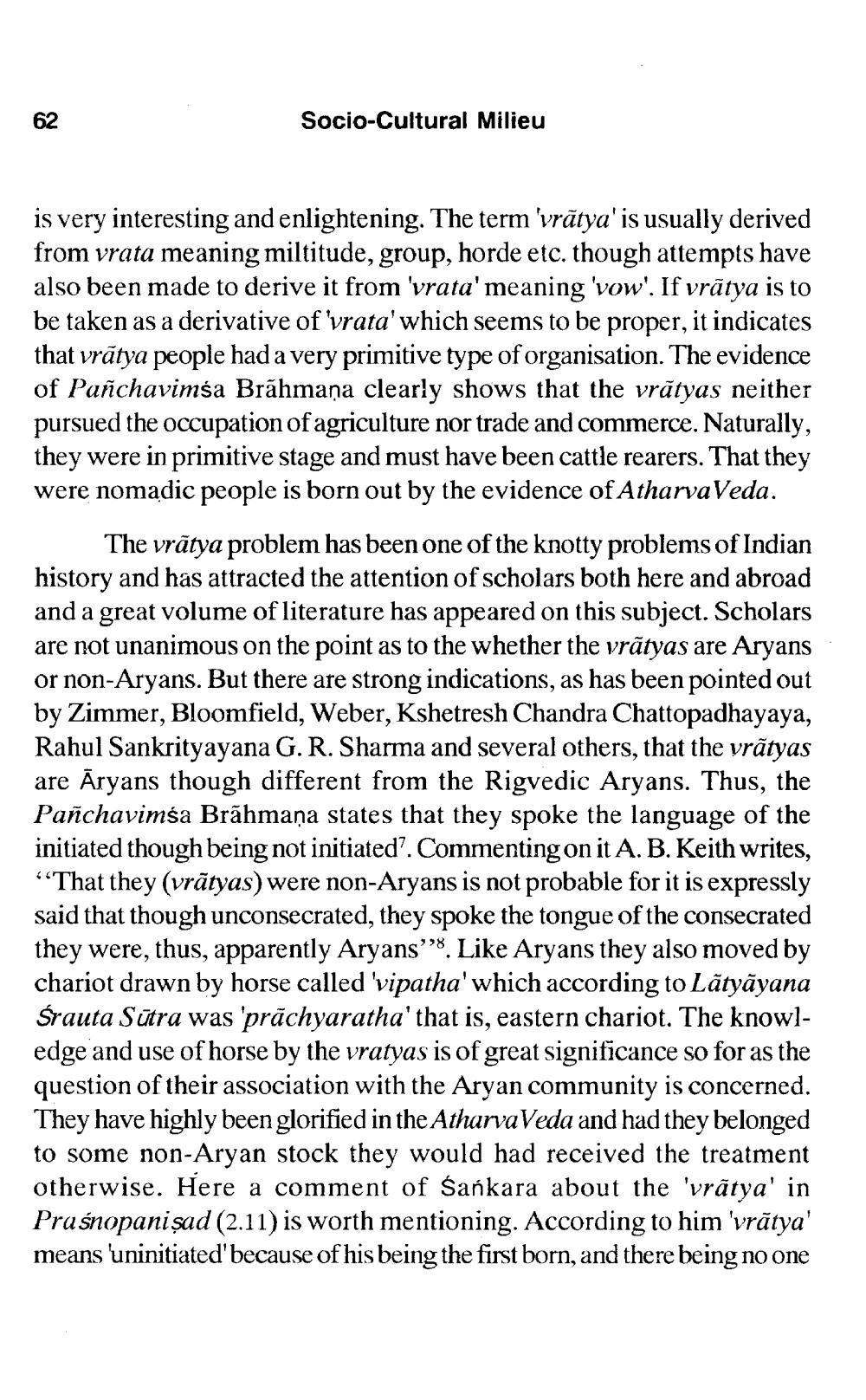________________
62
Socio-Cultural Milieu
is very interesting and enlightening. The term 'vrătya' is usually derived from vrata meaning miltitude, group, horde etc. though attempts have also been made to derive it from 'vrata' meaning 'vow'. If vrātya is to be taken as a derivative of 'vrata' which seems to be proper, it indicates that vrátya people had a very primitive type of organisation. The evidence of Panchavimśa Brāhmaṇa clearly shows that the vrătyas neither pursued the occupation of agriculture nor trade and commerce. Naturally, they were in primitive stage and must have been cattle rearers. That they were nomadic people is born out by the evidence of Atharva Veda.
The vrătya problem has been one of the knotty problems of Indian history and has attracted the attention of scholars both here and abroad and a great volume of literature has appeared on this subject. Scholars are not unanimous on the point as to the whether the vrâtyas are Aryans or non-Aryans. But there are strong indications, as has been pointed out by Zimmer, Bloomfield, Weber, Kshetresh Chandra Chattopadhayaya, Rahul Sankrityayana G. R. Sharma and several others, that the vrátyas are Aryans though different from the Rigvedic Aryans. Thus, the Pañchavimśa Brāhmaṇa states that they spoke the language of the initiated though being not initiated?. Commenting on it A.B. Keith writes, "That they (vrátyas) were non-Aryans is not probable for it is expressly said that though unconsecrated, they spoke the tongue of the consecrated they were, thus, apparently Aryans"8. Like Aryans they also moved by chariot drawn by horse called 'vipatha' which according to Látyāyana Śrauta Sūtra was 'prāchyaratha'that is, eastern chariot. The knowledge and use of horse by the vratyas is of great significance so for as the question of their association with the Aryan community is concerned. They have highly been glorified in the AtharvaVeda and had they belonged to some non-Aryan stock they would had received the treatment otherwise. Here a comment of Śankara about the 'vrătya' in Praśnopanişad (2.11) is worth mentioning. According to him 'vrătya' means 'uninitiated' because of his being the first born, and there being no one




